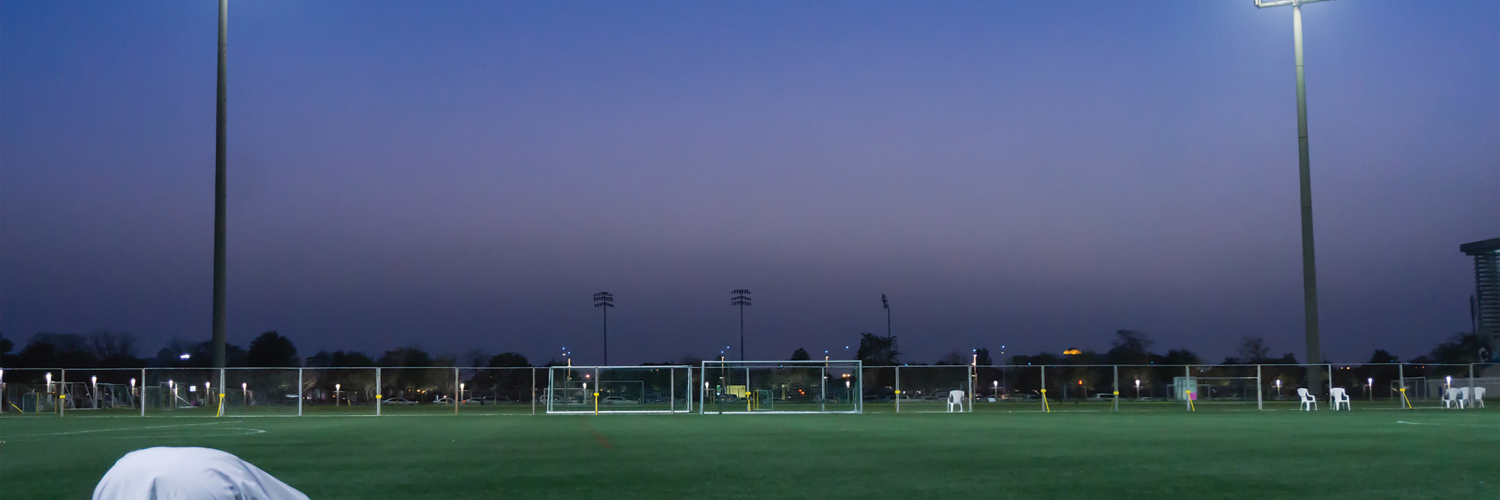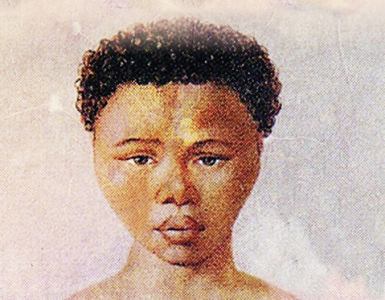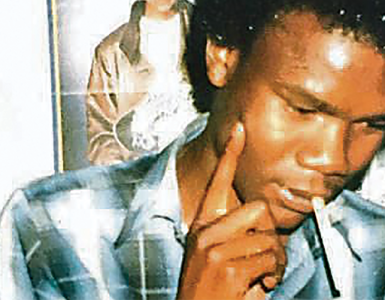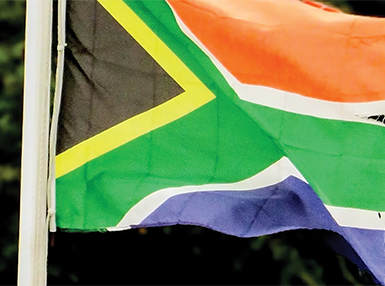RELIGION: African football is often maligned as steeped in superstition. But rather than endemic to the continent, debates about football ‘sorcery’ reflect global dynamics…
By Uroš Kovač
“Magic,” “sorcery,” and “witchcraft” come up over and over again in discussions about football in Africa. They are allegedly widespread in the African game and make for intriguing and controversial debates.
In the ongoing African Cup of Nations, religion has made an appearance: a Ghanaian Christian prophet predicted a player’s demise, and the Egyptian Football Association sacrificed a cow to bring luck to the national team. The prophecy did not come to pass and Egypt was knocked out by the DR Congo.
This might be a good moment to reassess debates about religion and spirituality in African football and find better ways to think about them.
One perspective is that football “sorcery” is a harmless practice that adds color and uniqueness to the African game and aids in players’ psychological preparation. However, debates about the morality and appropriateness of football “magic” are highly charged.
For instance, before the 2022 World Cup, Radio France Internationale (RFI) published a story about members of the Cameroonian national team allegedly consulting “traditional healers” in a village in eastern Cameroon. It mentions animal sacrifices, libations to ancestors, invocations of spirits, bathing in potions, and the use of herbs with alleged mystical powers.
Only one day after publication the President of Cameroon’s football governing body—none other than Samuel Eto’o Fils—reacted with an official statement, accusing the RFI of “defamatory remarks,” “dubious allegations,” an “insult” to players, and “ridiculous” claims that animal sacrifice is done in “the 21st century.” The statement concluded that the national team respects everyone’s freedom of religion and worship.
But if freedom of worship is respected, why condemn the report as insulting and dubious?
One problem is that much of the debate is framed in terms of tradition and belief, and endemic to Africa. There is a danger here of exoticising the continent as being steeped in superstition. It is useful to remember the Cameroonian footballers who protested three decades ago the journalistic fascination with the sensational and the exotic: “We hate it when European reporters ask us if we eat monkeys and have a witchdoctor. We are real football players and we proved this tonight.”
Another issue is that debates about football “magic” often rely on rumours and allegations. During my year-long field research on football in western Cameroon, I have not once encountered it in person (but others have). I have witnessed, instead, endless talk about it. There was much discussion about the “spiritual world” in which football matches are decided and rumours circulated about players and clubs using mystical methods to gain an advantage.
Not encountering football “magic” does not mean it has disappeared, but it suggests that it has become secretive and frowned upon. The endless rumour mill about “sorcery” is just as important as the practice itself; it is the secrecy and the mystique that maintains its relevance and potency.
Moreover, there is a wide variety of mystical practices that are allegedly carried out: from putting a piece of tree bark in a shin guard, as a form of “medicine,” to committing blood sacrifice to cause injuries to opponents, more akin to “witchcraft.” But in the heat of the urban radio trottoir that runs on speculation and intrigue, there is no clear line between the playful and the sinister, and spirituality easily becomes conflated with occultism.
Instead of thinking about football “magic” as an African specialty, we can think of debates about it as perspectives on global issues. Consider this quote from one traditional healer, offered to the BBC in 2012: “European players take drugs to improve their performance.
We Africans do not have access to drugs. We’ve got a third eye and traditional concoctions that scientific tests cannot detect.”
There is a powerful comment here about Africa’s marginalisation in the global economy and exclusion from the benefits of scientific accomplishments, but also about imagining possibilities to subvert systemic inequities through spiritual interventions.
Crucially, however, my interlocutors in western Cameroon did not consider mysticism as exclusive to Africa. In one team where I conducted research, coaches, and players speculated that the most powerful footballers and clubs around the world had all kinds of occult-like assistance.
Illuminati was brought up, as well as the Rosicrucian order and Freemasonry, all secretive associations of Western provenance. Famous teams and footballers from everywhere were rumoured to have access to mystical powers that allowed them to reach the dizzying heights of elite football. These occult speculations were reserved not only for footballers but more so for powerful figures such as politicians and elites, colonial and postcolonial, African and otherwise.
This perspective challenges the binary opposition between the West and the rest and de-centres Africans as exclusive alleged practitioners of “black magic.” It is rather an African perspective on the unpredictability of the sport globally, the high stakes of professional football, and the enormous power of the commercialised sport to create influential and wealthy larger-than-life icons.
What also gets lost in debates about “traditional” spirituality is the impact of other religions, like Islam and Christianity. Charismatic Pentecostal Christianity, known the world over for demonising “traditional” religions, has a large presence in Africa. In western Cameroon it was the Pentecostals who seemed most concerned about the “spiritual world” and the alleged proliferation of “evil spirits,” in football and beyond.
Footballers and clubs were increasingly turning to charismatic “men of God” for prayers, objects, and prophecies that could bring them strength, protection, and luck.
When the coach of a team I followed threw salt in front of the club’s bus before entering the stadium, for “protection,” the team’s neo-charismatic coaches explained to me that there was a biblical reasoning behind it.
When players spread olive oil on their shins and arms to regain strength before important matches, I was told that they were using non-problematic “anointed” oil, prayed over by a pastor. These practices appeared similar to “magic,” but they were not labelled as such, and there was nothing secretive about them.
Charismatic Christianity therefore offers the footballers powers beyond the physical, but now with a veneer of religious morality that allows them to retain distance from the controversial “medicine.” The moral high ground claimed by the religion allows it and its leaders to flourish in conditions of unpredictability and suspicion.
Debates about morality, effectiveness, and extent of magico-religious practices are unlikely to be settled any time soon. It might be time, however, to consider them as not simply peculiarities of African football, but rather reflections on global dynamics and structural inequities. More than superstition, belief, or psychological preparation, spirituality and religion in football provide perspectives on politics and power.
- Uroš Kovač is a social anthropologist writing about gender, migration, religion, and sports. He is a Marie Skłodowska-Curie Postdoctoral Fellow at the University of Groningen, Faculty of Religion, Culture and Society. This article was sourced from Africa Is a Country is a site of opinion, analysis, and new writing on and from the African left
Comment
GOVERNMENT MUST ACT AND STOP PROMISING
After delivering the State of the Nation Address to celebrate 30 years of democracy last week, which was rejected by many opposition political parties and analysts who dubbed it a repeat of the same old promises, President Cyril Ramaphosa should be reminded that good governance improves reputation and foster trust amongst communities.
Telling the nation about the same problems that the ANC- led government was battling to resolve is no longer what the people of South Africa want to hear from their leader. What the nation wants to know is the action – and results – that has been taken by government to address these problems that have caused so much misery and instability in our country. Deadlines must be set to achieve these goals. It is common knowledge that crime levels are spiralling with large numbers of men, women and children being murdered, raped and robbed daily. Unemployment, especially amongst the youth is at its worst levels. Food prices are soaring almost every month and the economy is crumbling. Most of the country’s municipalities are collapsing and unable to deliver services to their respective communities.
Ramaphosa also cited corruption as a burning issue. The greatest damage to the country’s economy was caused during the era of state capture when billions of rands earmarked for major projects and development for the needy, were stolen. Those implicated in these serious crimes included high-ranking government officials.
The success by the NPA’s Asset Forfeiture Unit to obtain freezing court orders totalling R14 billion and R8,6 billion in corrupt proceeds, should be welcomed. Investigations are continuing against a number of suspects. But that is not enough. What the nation wants is the swift response by the authorities to arrest and bring the culprits to court and ensure that they are convicted and jailed. They should be named and shamed and ordered to pay back the money they had looted from the State. These cases must be fast-tracked to the courts of law as quickly as possible. That is the action the public seeks from the authorities.
The President has also conceded that unqualified people were illegally occupying top positions at certain municipalities and this resulted in the total lack of service delivery especially in black townships. What is needed is swift action to remove these ill equipped officials and replace them with qualified managers. The government has been talking and promising – for years – to equip municipalities with people with the right skills.
The government has achieved a lot in terms of trying to uplift the standard of living especially for the poor. These efforts were curtailed by the looting of State funds and the devastation caused by the Covid-19 pandemic. Loadshedding has also caused a lot of harm to the country’s economy with many jobs lost after a large number of companies shut down.
What the nation needs now is action. As the saying goes, democratic governance is building open, responsive and accountable institutions and processes that serve the needs and preferences of the public..































